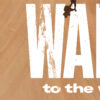From the lab to health communications: how a PhD in biomedical research can launch your career in medical writing
Are you finishing your PhD and considering your options outside of academia? Have you considered a role in health communications? If you have a flair for writing, this could be the career for you.
At Infinity, we work with a range of stakeholders, across pharmaceutical, biotechnology, and healthcare technology companies, as well as global health organisations. The work is hugely varied, developing content across a range of formats, for different clients and audiences.
While you don’t need a PhD to find a career in this field — indeed, many of our team don’t — it certainly provides you with a set of skills that can help you secure a role and hit the ground running.
If you’re considering your career options post-PhD, here’s our list of attributes that can help you thrive in a health communications role.
Communication skills
Let’s start with the most obvious. As a researcher, you’ll be well practiced at translating complex ideas into concise, logical summaries – whether written or spoken. You have experience of presenting research in multiple formats, whether that’s a thesis, a poster, a slide presentation, or a “3-minute thesis” elevator pitch. You’ve presented under pressure at lab meetings, conferences, departmental seminars, and your PhD defence.
If you have an aptitude for written and verbal communications, a role in medical writing could be a good fit. In a health communications environment, these experiences give you a strong grounding for presenting to and connecting with clients and producing content across many formats. Unlike in your PhD, you’ll find yourself producing works for a wide range of audiences, requiring you to adapt and articulate your work to suit your reader. For this, being able to communicate challenging subject matter in an audience-appropriate manner is essential.
Accelerated learning
Throughout your academic career, you’ve had to learn on your feet. You’ve spent your time soaking up knowledge on your PhD topic, and maybe even your peers’ subject areas. You’ve learnt challenging techniques in the lab and mastered the use of a wide range of hardware and software.
Even if none of this knowledge is relevant to your next career, you’ve demonstrated an ability to absorb information quickly. In medical writing, you’ll find yourself jumping into novel topics and having to develop an understanding of a field within a short timeframe. You may also find yourself working in unfamiliar formats, which could require you to adapt your writing style. Your innate curiosity means you’re motivated to keep learning and improving, and you’ll develop skills quickly in your new role.
Creativity
Most might not consider research a creative field, but you’ve probably flexed your creative muscles more than you realise. Whether in modifying protocols to make do with the resources at your disposal, or designing figures to visualise your results, you’ve come up with creative and innovative solutions to get to your goal.
In a health communications environment, this creativity can bring original ways of thinking to the table. Creativity helps us to formulate ideas from a project brief and make these ideas fit within constraints such as the budget, audience, and client preferences. It helps us to breathe new life into worn-out topics and produce communications that people actually want to engage with.
Critical review of literature
You’ve got years of experience of trawling through literature, and you know exactly what to look for when evaluating articles. You can distinguish between strong, evidence-based facts versus controversial or unsubstantiated statements.
When it comes to producing materials for clients, ensuring the accuracy of your writing, and the sources you use, is imperative. Whether you’re referencing peer-reviewed articles or collating insights from diverse sources, being able to critically assess the credibility of your sources is key to producing trustworthy communications.
Taking ownership
Every researcher will be familiar with balancing a varied workload, typically comprising of multiple experiments, lab chores, admin, data analysis, and compiling updates for lab meetings. This not only requires project management skills and an ability to prioritise, but also demonstrates a high level of self-motivation to work independently, flexibility to accommodate changing workloads, and time management to ensure work gets done on time. As someone who can be left to their own devices, your future employer can trust you to make headway with your work without any micromanagement.
Attention to detail
A vital skill in research is attention to detail. It’s needed for planning experiments, troubleshooting errors, analysing results, and writing up your work. In health communications, this attention to detail enables you to know what’s essential to include in a piece of writing, to critically assess work, and to pick up on errors, typos, and inconsistencies.
“Big picture” thinking
Big picture thinking refers to your ability to consider a concept in its entirety — from a micro view to a macro view. In research, your work may be focused on the minutiae, for instance, the role of a single DNA mutation. As you zoom out, you might assess how this can impact the body as a whole, perhaps by contributing to the risk of a particular disease. At the macro level, you also draw conclusions from your work to the societal implications, such as pointing towards future therapeutic possibilities.
This kind of thinking can help you to build effective strategies, grasp abstract possibilities, and understand the long-term goals and far-reaching implications of projects. An ability to conceive of and articulate these ideas can help formulate content with greater impact, to make a lasting impression on your audience.
Collaboration
While academia can be a solitary existence, you may well have teamed up by sharing technical expertise with other researchers in your department, brainstorming with your lab group, or working with collaborators to carry out experiments.
This sharing of knowledge and utilising diverse skill sets is equally valuable in a health communications environment. When collaborating with clients, we work closely with them to understand their needs and develop communications that are tailored to fit. At Infinity Communications, we collaborate to make best use of our team’s diverse range of work and life experiences. We see this diversity as a huge advantage, as every team member brings something different to the table. It enables us to work across a broad range of topics and audiences, it helps us to brainstorm and consider many potential solutions to one problem, and it enables us to develop our skills and knowledge from each other’s expertise.
If you’re considering your next move, why not take a look at our current job opening? We’re on the lookout for a new medical copywriter and we’d love to hear from you.
Author: Hannah Larbalestier, Medical Copywriter at Infinity Communications








